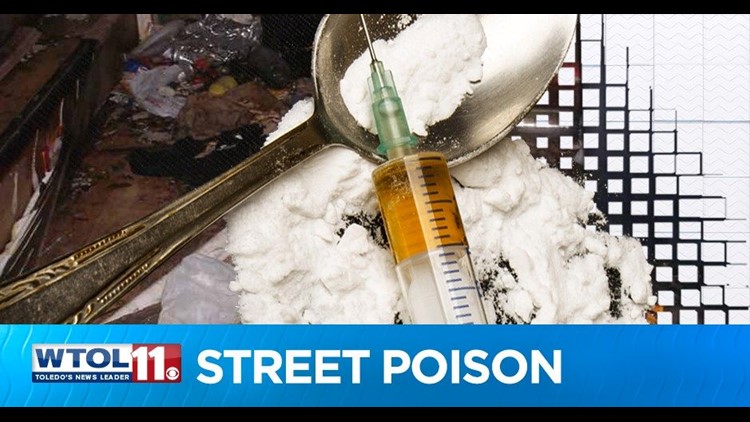LUCAS COUNTY (WTOL) - The heroin epidemic rages on in northwest Ohio. And new numbers from the coroner's office show 2016 could be another record-breaking year for heroin-related deaths.
Matt Bell is a recovering heroin addict. You may not have guessed that by his up-bringing.
"Life was great growing up," said Matt. "(I) played basketball, baseball and football. I got straight A's."
But things went downhill for Matt Bell. The young athlete switched schools, lost his father and started hanging out with the wrong crowd.
It began with alcohol, tobacco and marijuana. And then an injury changed Matt's life for the worse.
"(I) went to college for baseball at UT, tore my rotator cuff and I abused the prescription painkillers that they gave me," said Matt. "It got bad really quick. Within a week, I was addicted," says Matt.
He went through a 90-pill Percocet prescription in a week, and Matt says the first time his dealer ran out of pills, he offered him heroin.
"The guy actually gave it to me for free for the first time cause he told me he knew I'd come back," said Matt. "And he was right. I never went back to pills. Ever."
Matt had brief moments of sobriety and ultimately got hooked back onto heroin. And he isn't alone in the cycle.
Chief toxicologist for the Lucas County Coroner's Officer, Dr. Robert Forney says it's believed there are 10,000 addicts in Lucas County.
Forney started keeping track of heroin-related deaths in 2010 for the 21-county area that the coroner's office services - That's 19 counties in northwest Ohio and two in southeast Michigan.
Here's the breakdown of heroin-related deaths beginning in 2010:
- 2010: 8 Deaths
- 2011: 15
- 2012: 31
- 2013: 80
- 2014: 145
- 2015: 215
- 2016: 221 (Projected)
From January through March of 2016, there were 57 heroin-related deaths.
"This heroin epidemic is unbelievably large," said Dr. Forney. "I've never seen anything like it in my entire career."
The coroner's office has been so busy during this epidemic, it's had to hire an additional employee and also buy a second piece of equipment for $300,000.
Dr. Forney believes there are two big reasons for the surge in deaths:
- The drop in price
- The increase in purity
Dr. Forney says many people turn to heroin when they experience withdrawal from painkillers.
"They go through withdrawal, and they're sicker than they've ever been in their life," he said. "They don't' want to do that, so they find other sources."
It's what happened to Matt.
He says he was more worried about going through withdrawal than overdosing.
"I pushed everybody away; Lost everything that I had," said Matt. "I was homeless, walking the streets of west Toledo with nothing but the clothes on my back."
Then, Matt's friends and family refused to help him anymore and something finally changed.
"I reached out to the D.A.R.T. program, and they had me in treatment the next day," said Matt.
Matt has been arrested 13 times in four states.
Over the course of his nine-year addiction, he never thought he'd reach out to a sheriff's office for help.
"You can't jail this away," said Matt. You can't lock someone up and expect them to get sober."
Lucas County's new drug court, which officially started a month ago, is another example of that mentality.
Judges Stacy Cook and Ian English will eventually handle 120 cases. It's a strict program in which addicts will have to check in weekly and meet specific goals to hopefully get them sober and keep them out of jail.
Judge Cook says unfortunately this will likely not be the solution to the problem. But it can at least serve as a tool.
"The intense supervision, streamlining into treatment, linking all their services, in a much more concise way, ultimately gives them a better opportunity to make the connections they need to make," said Cook.
As for Matt, he's been sober for more than seven months. He even started "Team Recovery", visiting schools to talk with kids in hopes of keeping the future generations off heroin.
"People need treatment. This is a disease. There's no arguing. This is a disease," said Matt.
If you or someone in your family needs help, call D.A.R.T. at 419-213-6582 or Team Recovery at 419-561-5433.



